
Henri Matisse Bathers by a river 1909-16

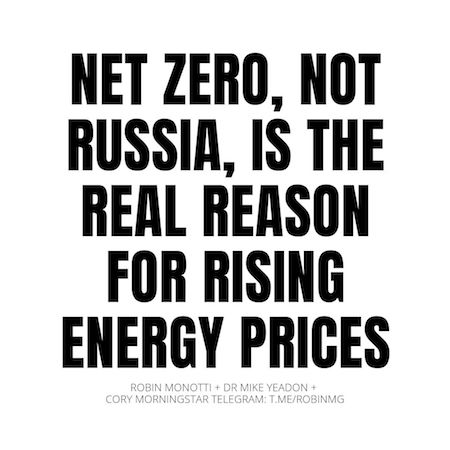

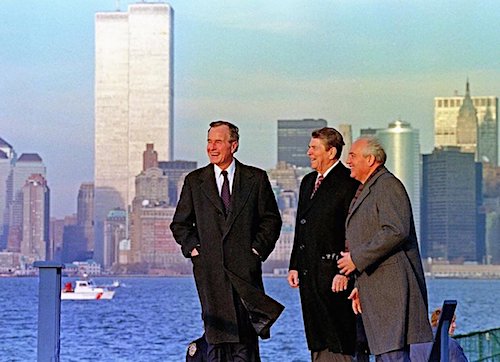

Pizza Hut
R.I.P. to a real one: the guy from the Pizza Hut commercial pic.twitter.com/8he9hUamPt
— Parker Molloy (@ParkerMolloy) August 30, 2022

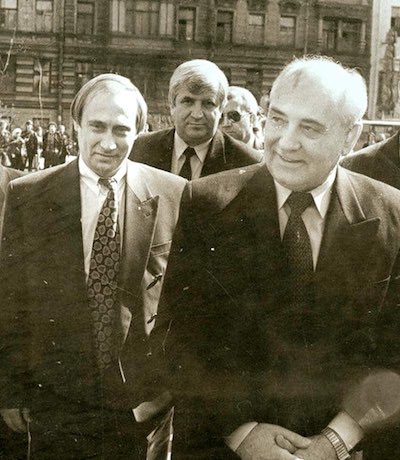


Dies suddenly
"It’s a 5-10% rise over normal in non-Covid deaths…"
Whoa. Heartless.
That "5-10%" represents more young lives lost than in Vietnam by a factor of 1.5x. In just the US. This is just New Jersey, just 2022 so far…"just" part of that 5-10% rise… pic.twitter.com/XieEUNDtao— Chris "Early Treatment" Martenson, PhD (@chrismartenson) August 30, 2022


Soon the Debt Rattle will live up to its original name again.
• UK Inflation May Top 22% Next Year – Goldman Sachs (RT)
Inflation in Britain could jump above 22% in 2023 if gas prices continue to grow, Bloomberg reported on Tuesday, citing Goldman Sachs analysts. The bank’s economists estimate that if prices keep rising, the UK may be forced to hike its energy cap by a further 80% in January, which would in turn push inflation up to 22.4% and cause a 3.4% drop in the country’s GDP. Moreover, even if energy prices stabilize, analysts say the peak inflation rate will be around 14.8% in January, which is enough to plunge the country into a recession. According to Bloomberg, investors expect drastic measures from the Bank of England in the coming months to battle inflation, including a key rate hike of up to 4.25% from the current 1.75%. Goldman Sachs’ inflation forecast tops the previous one made last week by Citigroup, which expects inflation in the UK to surge to 18.6% next year, and the Bank of England’s expectation of 13%.

“..Let’s not forget that for most licensees the pub is not just their business but also their family home.”
• Thousands Of UK Pubs ‘Face Closure’ Without Energy Bills Support (G.)
Thousands of pubs face closure without urgent government support to soften the blow from soaring energy bills, the beer industry has said, putting jobs at risk in a sector still battling to recover from the Covid pandemic. The bosses of companies owning almost half of the UK’s 47,000 pubs said tenants were already giving notice because they could not cope with energy bills, which are due to rise more than fivefold in some cases. Unlike households, businesses do not benefit from a cap on what suppliers can charge for gas and electricity, leaving many firms facing oblivion without state intervention. In a letter to the government and the Conservative leadership candidates, Liz Truss and Rishi Sunak, the British Beer and Pub Association said mass job losses were inevitable in the absence of help for an industry that employs 940,000 people.
Nick Mackenzie, the chief executive of the 3,100-strong pub chain Greene King, said the energy bill blow had come just as the sector was battling back from the ravages of the Covid-19 lockdowns, which hit hospitality particularly hard and left many with punishing debts. “While the government has introduced measures to help households cope with this spike in prices, businesses are having to face this alone, and it is only going to get worse come the autumn,” Mackenzie said. “Without immediate government intervention to support the sector, we could face the prospect of pubs being unable to pay their bills, jobs being lost and beloved locals across the country forced to close their doors, meaning all the good work done to keep pubs open during the pandemic could be wasted.” His counterpart at St Austell Brewery, Kevin Georgel, said thousands of pubs could be forced to call last orders for good.
Chris Jowsey, the chief executive of Admiral Taverns, said the impact was frightening. He said: “One of our licensees reluctantly gave notice to leave his pub after the cost of electricity increased by 450%, making it impossible to trade profitably. Let’s not forget that for most licensees the pub is not just their business but also their family home.”
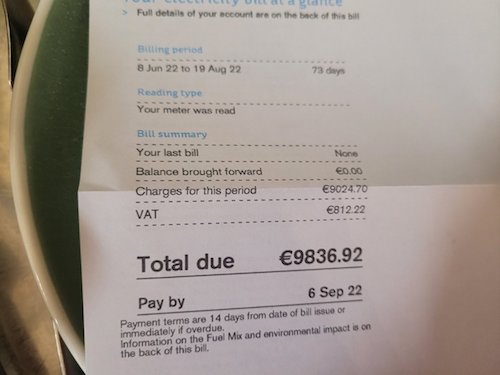
“I got this electricity bill today, how in the name of God is this possible, we’re a small coffee shop in westmeath”

Early warning: you’re on your own.
• Greek PM: Resources Against Energy Hikes Not ‘Infinite’ (K.)
The Greek economy does not have “infinite” resources to keep offsetting the impact of skyrocketing energy prices, Prime Minister Kyriakos Mitsotakis told ministers on Tuesday, warning of a “tough” winter ahead. “Any steps we take will be measured so that temporary needs do not undermine national imperatives… If we have succeeded in supporting society so far, to the best of our ability, it is precisely because we exhaust the fiscal limits, without abolishing them,” the prime minister told a cabinet meeting at his office in Athens. The prime minister hailed the European Commission’s announcement on Monday that it intends to introduce a series of reforms to the energy market to contain runaway prices, but warned against delaying any such initiatives.
“Every day that passes without a joint approach to the energy crisis makes the problems for all Europeans grow,” said Mitsotakis, who had presented Brussels with list of such reform proposals earlier in the year. The energy crisis, added Mitsotakis, is a concerted assault against the West by Russia, which “is seeking to create social turmoil and political instability inside the countries opposing its plans by applying economic pressure.” He added that Greece is among the countries being targeted by Moscow for taking Ukraine’s side in Russia’s ongoing invasion. “Mr Putin is doing nothing to hide it, and neither is Mr Erdogan, who has publicly stated that he would like a different government in Athens,” Mitsotakis added, referring to Russian and Turkish presidents, respectively.

“The brutal lesson is that neoliberalism is like a chocolate teapot..”
• The Real Problem Is That Europe Doesn’t Have Any Energy Supplies (Every)
Of course, the real problem is that Europe doesn’t have any energy supplies to force state or private capital into – or at least not ones it is prepared to tap: indeed, Germany’s economy minister says the “bitter reality” is that Russia will not resume gas supply. Enjoy those stocks you have built up at huge expense, because there will be far less flow ahead. As such, what power source will the EU link electricity prices to? Solar panels, in winter when northern Europe’s energy requirements are at their highest? Burning the M&Ms that unicorns excrete? Underlining the point, Brent oil prices rose 4% to over $105 yesterday before retreating slightly (and wheat and corn went up 3-4% too, showing that central banks are still behind the curve on that front); Iraq slipped into chaos, with the US airlifting its personnel out of another Greater Middle East embassy(!); it was rumored OPEC+ may announce a production cut ahead; that the US might have to dip into its Strategic Petroleum Reserve even more – as if there can’t be a real crisis that demands its use ahead; and US Department of Defence spokesman Kirby warned he was concerned about the possibility of energy shortages ahead.
The brutal lesson is that neoliberalism is like a chocolate teapot – it looks amazingly sweet until things get ‘hot’, and then it serves no purpose at all. Yet industrial policy/corporatism/fascism/Common Prosperity also needs to be based on the real, and realpolitik, not the ideal. If the EU throws de facto MMT/printed money at energy subsidies within a neoliberal framework with no concrete, achievable plan for more energy supply (of what? From whom?) then it is simply going to drive global energy prices higher, many EM into the ground – some of whom are located close to Europe, EUR well through the parity floor, and inflation still into the sky. So let’s hope there is joined-up thinking behind their latest proposals. Relatedly, the title of today’s Daily, ‘The Power of the Powerless’ (which I have used before) addresses the energy situation in Europe, but was also the title of a political pamphlet by dissident Vaclav Havel against communist Czechoslovakia.
He argued the first step to bringing down the regime was for a powerless greengrocer not to place the state-backed sign saying, ‘Workers of the World, Unite!’ in his window. If Europe (and others) had done the same with certain neoliberal-approved signs they arguably would not be in the critical mess they are in now. Finally, and also linked to the Daily title –as even the ECB agrees with me!– military reports are that a Ukrainian Kherson counter-offensive has begun. Market participants who have read any history will know that watching the success or failure on that key front will likely also be key to the global geopolitical and inflation outlook longer term. Far more so than most central bank warble, regardless of how much power they like to think they have.

“.. the move was to “protect the legitimate business rights and interests of the relevant importers and exporters..”
• China Is Aggressively Reselling Russian Gas To Europe (ZH)
One month ago, we were surprised to read how, despite a suppressed appetite for energy amid its housing crash and economic downturn (for which “zero covid” has emerged as a convenient scapegoat for emperor Xi), China has been soaking up more Russian natural gas so far this year, while imports from most other sources declined. In July, the SCMP reported that according to Chinese customs data, in the first six months of the year, China bought a total of 2.35 million tonnes of liquefied natural gas (LNG) – valued at US$2.16 billion. The import volume increased by 28.7% year on year, with the value surging by 182%. It meant Russia has surpassed Indonesia and the United States to become China’s fourth-largest supplier of LNG so far this year!
This, of course, is not to be confused with pipeline gas, where Russian producer Gazprom recently announced that its daily supplies to China via the Power of Siberia pipeline had reached a new all-time high (Russia is China’s second-largest pipeline natural gas supplier after Turkmenistan), and earlier revealed that the supply of Russian pipeline gas to China had increased by 63.4% in the first half of 2022. What was behind this bizarre surge in Russian LNG imports, analysts speculated? After all, while China imports over half of the natural gas it consumes, with around two-thirds in the form of LNG, demand this year had fallen sharply amid economic headwinds and widespread shutdowns. In other words, why the surge in Russian LNG when i) domestic demand is just not there and ii) at the expense of everyone else?
“The increase in Russian LNG could be a displacement of cargoes going to Japan or South Korea because of sanctions, or weaker demand there,” said Michal Meidan, director of the China Energy Programme at the Oxford Institute for Energy Studies. One thing that was clear: China wanted to keep its arms-length gas dealing with Russia as unclear as possible, which is why the General Administration of Customs of China stopped publicizing the breakdown in trade volume for pipeline natural gas since the beginning of the year, with spokesman Li Kuiwen confirming that the move was to “protect the legitimate business rights and interests of the relevant importers and exporters”.

Bet on it.
• Poland Warns Of EU ‘Implosion’ Over Ukraine Conflict (RT)
A burgeoning divide within the EU on the Ukraine conflict could implode the bloc, Polish Prime Minister Mateusz Morawiecki told French media on Monday. This is because certain member states would prefer to seek peace rather than sticking with Kiev until it prevails in its fight against Russia, the Polish leader said. Speaking to Le Figaro newspaper, Morawiecki indicated that Russia would endeavor to persuade the West to end the hostilities in Ukraine and get back to “business as usual,” taking advantage of divisions among EU members on the matter. “So yes, a threat of implosion exists. That is why it is so important to maintain a dialogue between us, to find compromises and a common denominator,” he said.
On Monday, Morawiecki met with French President Emmanuel Macron. According to the Polish prime minister, the two discussed the Ukraine conflict, how to “force Russian troops to withdraw,” as well as the EU’s economic woes. The Polish leader said he and Macron share a common vision for strengthening the bloc’s military capabilities. However, Morawiecki admitted that he and the French leader have a number of differences over Ukraine, saying that while they both believe that European unity should be defended, Macron would do better to talk less to Russian President Vladimir Putin and more to Ukrainian leader Vladimir Zelensky. “My view is that Zelensky deserves all the French support, because he is fighting for the most important European values, for freedom, justice, sovereignty. He should be the main recipient of phone calls from the Elysee Palace,” Morawiecki noted.
He also said that if Poland held the rotating EU presidency, it would push for the seizing of Russian assets, which are now just frozen, because “this type of sanctions could really threaten Russia.” Morawiecki’s comments come after the EU’s foreign policy chief, Josep Borrell, admitted on Sunday that the bloc would encounter “major challenges” due to the anti-Russian sanctions that it slapped on Moscow over the Ukraine conflict. Meanwhile, Politico reported on Monday that Germany and France had spoken against a full visa ban on Russian nationals, which has apparently frustrated some Russia hawks in the EU, who are calling for a stronger pushback against Moscow.

Of course in an energy crisis, you shut down your biggest nuclear plant.
• US Urges Shutdown Of Nuclear Plant Slated For IAEA Inspection (RT)
Senior US officials have urged a full shutdown of Ukraine’s Zaporozhye nuclear power plant, which is under Russian control. A “controlled shutdown” of the facility “would be the safest and least risky option in the near-term,” White House National Security Council spokesperson John Kirby told journalists on Monday. The same call came from an unnamed senior US defense official, who briefed journalists the same day. The power plant and the city of Energodar that hosts it have been under Russian control since March, though Ukrainian civilian workers continue to operate the facility. For several weeks now, the site has been under constant artillery and drone attacks. Russia and Ukraine have accused each other of being behind the strikes.
Kiev has also claimed that Russian forces have used the Zaporozhye facility as a military base and have deployed heavy weapons there, which Moscow has denied. This week, the International Atomic Energy Agency (IAEA), the UN’s nuclear watchdog, is expected to visit the plant for an on-site inspection. The agency’s delegation will be led by its head, Rafael Grossi, and may arrive at the site as soon as Wednesday. The Soviet-built Zaporozhye nuclear power plant is the largest facility of its kind in Europe. It hosts six of Ukraine’s 15 power-generating reactors, which are spread across four plants. The facility reached its full capacity of over 6,000 MW for the first time in December 2021, when all of its VVER-1000 units became operational at the same time.
At the moment, only reactors five and six remain online. Despite hostilities between Russia and Ukraine, the Zaporozhye plant supplies power to parts of Ukraine controlled by both sides, according to the head of the Russia-allied administration of Zaporozhye Region, Vladimir Rogov. The Russian military suggested in mid-March that shutting down the reactors could become necessary due to Ukrainian attacks on the plant. Such a proposal was voiced by Lt. Gen. Igor Kirillov, who heads the unit of the Russian armed forces trained in dealing with the consequences of the use of weapons of mass destruction, including radiation contamination.

Surprise: Zelensky says it’s the Russians.
• Ukraine Targets Possible IAEA Route To Zaporozhye – Local Official (RT)
Ukrainian forces are shelling a potential route of the International Atomic Energy Agency (IAEA) mission, which is set to examine the Zaporozhye Nuclear Power Plant this week, local authorities claimed on Tuesday. Zaporozhye Region council member Vladimir Rogov told RIA Novosti that “Ukrainian nationalists are targeting locations that could be visited by the IAEA mission in Energodar,” where the plant is located. He added that “[Ukrainian President Vladimir] Zelensky’s regime also started a military operation in the south of the country,” which raises concerns for the safety of the IAEA mission. Rogov also said Kiev’s forces have shelled the NPP’s resort house that could accommodate the IAEA delegation.
On Monday, IAEA chief Rafael Grossi announced that an expert group would visit the NPP this week to assess the damage sustained by the plant and check the safety and security systems. Zaporozhye Nuclear Power Plant has been under Russian control since March. Moscow has repeatedly accused Ukrainian forces of attacking the plant, while warning that the shelling could trigger a disaster that would eclipse the Chernobyl incident. Kiev insists, however, that Russian forces are shelling the site while stationing military hardware there. On Sunday night, Ukrainian forces shelled Energodar, the city where the plant is located, local officials said.
They claimed that the attack, which injured nine people and deliberately hit a number of residential houses, was meant to torpedo the upcoming IAEA mission. “This provocation by Kiev-controlled militants is aimed at derailing the visit of the IAEA chief to the Zaporozhye NPP,” they said at the time. Also on Monday, the Russian Defense Ministry claimed that Kiev’s forces attempted a counter-offensive in Kherson in southern Ukraine, but “failed miserably.” The ministry went on to say that the Ukrainian army had attempted to attack in three directions, but made no gains and suffered “great losses,” which included dozens of tanks and armored fighting vehicles.

“Russia may recover a lot sooner than Europe.”
• EU Has No Alternative To Russian Energy – ex Saudi Aramco VP (RT)
There’s not enough capacity in the world to replace Russia’s gas supply to the European Union, while Moscow has plenty of markets to sell its energy to, the former executive vice president at Saudi Aramco, Sadad Al-Husseini, told CNBC on Monday. “The US doesn’t have the LNG capacity to replace Russia’s exports to Europe,” he said, noting that power bills across the EU are set to soar this winter. According to Al-Husseini, that could lead to serious problems on the global energy market. “This situation is a new world, and it’s not a very good one for energy,” he warned. “In any case, there isn’t enough LNG capacity in the world to make up for the Russian exports to Europe,” the former executive said, adding that, “It will take years for the EU to find resources to replace Russian supply.”
As regards to Moscow losing EU buyers, he noted that, despite Western sanctions, there are “plenty of alternative markets” for Russian energy, including China, Japan, or India. Meanwhile, Europe does not have alternative energy sources, he said, “while the US is maxed out already, North Africa has got problems,” and OPEC is also running out of spare capacity. “So, it’s a global problem,” he said. The official suggested that, while the Russian economy may suffer under Western sanctions, the rest of the world will be suffering with them. However, he stressed that “Russia may recover a lot sooner than Europe.”

@imetatronink:
“• 48 tanks
• 83 armored vehicles
• ~1200 soldiers
A massacre.
This will be the final AFU “offensive” of the war.”
Surprise: Zelensky says it’s a big success.
• Promised “Major Ukrainian Counter-attack” Ends In Disaster (Saker)
(machine translation) The Defense Ministry called the losses of the Ukrainian Armed Forces during the failed offensive of Ukraine near Kherson Ukrainian troops attempted an offensive in the Mykolaiv and Kherson regions, as a result, the AFU units suffered heavy losses, the Russian Defense Ministry told reporters. “Today, during the day, on the direct instructions of Zelensky, Ukrainian troops attempted an offensive in the Mykolaiv and Kherson regions in three directions. As a result of the active defense of the grouping of Russian troops, the AFU units suffered heavy losses,” TASS reports. The ministry added that “the enemy’s losses in manpower amounted to more than 560 servicemen, another attempt at offensive actions of the enemy failed miserably.”
According to the Defense Ministry, the Russian Armed Forces destroyed 26 Ukrainian tanks, 23 infantry fighting vehicles, nine other armored combat vehicles, shot down two Su-25 attack aircraft. Earlier on Monday, Deputy head of the administration of the Kherson region Kirill Stremousov said: the AFU has been shelling several settlements of the Kherson region since Sunday evening. Schools, social infrastructure were destroyed, residential buildings were damaged, the official confirmed. But there is no question of any APU offensive on Kherson, statements in the Ukrainian media – “this is some kind of illusion, a movie,” Stremousov pointed out.
As the head of the Kakhovsky district, Vladimir Leontiev, in turn, reported, the AFU inflicted more than 10 missile strikes on Novaya Kakhovka, including residential buildings and schools. Some strikes were carried out from HIMARS, residential buildings and a school were damaged, the head of the district said. Aviation, missile troops and artillery hit nine control points of the Armed Forces of Ukraine during the day, including on the territory of the Mykolaiv region, the official representative of the Russian Defense Ministry, Lieutenant General Igor Konashenkov, said on Monday.
‘Now is the time for Russian soldiers to flee’: Zelensky
'Now is the time for Russian soldiers to flee': Zelensky | AFP
Source: AFP News Agency (Youtube) pic.twitter.com/o3A5W6djmw— Wittgenstein (@backtolife_2023) August 30, 2022

“Day and night, the drums of war never stop beating.”
• Ukraine & the Politics of Permanent War (Chris Hedges)
No one, including the most bullish supporters of Ukraine, expect the nation’s war with Russia to end soon. The fighting has been reduced to artillery duels across hundreds of miles of front lines and creeping advances and retreats. Ukraine, like Afghanistan, will bleed for a very long time. This is by design. On Aug. 24, the Biden administration announced yet another massive military aid package to Ukraine worth nearly $3 billion. It will take months, and in some cases years, for this military equipment to reach Ukraine. In another sign that Washington assumes the conflict will be a long war of attrition it will give a name to the U.S. military assistance mission in Ukraine and make it a separate command overseen by a two- or three-star general.
Since August 2021, Biden has approved more than $8 billion in weapons transfers from existing stockpiles, known as drawdowns, to be shipped to Ukraine, which do not require congressional approval. Including humanitarian assistance, replenishing depleting U.S. weapons stocks and expanding U.S. troop presence in Europe, Congress has approved over $53.6 billion ($13.6 billion in March and a further $40.1 billion in May) since Russia’s Feb. 24 invasion. War takes precedence over the most serious existential threats we face. The proposed budget for the CDC in fiscal year 2023 is $10.675 billion while the proposed budget for the Environmental Protection Agency (EPA) is $11.881 billion. Our approved assistance to Ukraine is more than twice these amounts.
The militarists who have waged permanent war costing trillions of dollars over the past two decades have invested heavily in controlling the public narrative. The enemy, whether Saddam Hussein or Vladimir Putin, is always the epitome of evil, the new Hitler. Those we support are always heroic defenders of liberty and democracy. Anyone who questions the righteousness of the cause is accused of being an agent of a foreign power and a traitor. The mass media cravenly disseminates these binary absurdities in 24-hour news cycles. Its news celebrities and experts, universally drawn from the intelligence community and military, rarely deviate from the approved script. Day and night, the drums of war never stop beating. Its goal: to keep billions of dollars flowing into the hands of the war industry and prevent the public from asking inconvenient questions.

You put in the sanctions. That backfired. Well, you always know who to blame. Problem is, when people are cold and dark, they will look at you.
• France Accuses Russia Of Using Gas As ‘Weapon Of War’ (RT)
French Energy Minister Agnes Pannier-Runacher on Tuesday accused Moscow of using its gas exports as a weapon after a reduction of Russian supplies to France was reported. “Very clearly Russia is using gas as a weapon of war and we must prepare for the worst case scenario of a complete interruption of supplies,” the minister told France Inter radio. EU governments are trying to fill up gas storages to avoid shortages during the fast-approaching heating season, and any supply shortfalls from Russia, which is still a large source of gas for the bloc, are met with increased worry.
Earlier on Tuesday, Le Figaro reported that, according to a press release from French energy supplier Engie, Russia’s Gazprom has cut gas supplies because of an unspecified contractual dispute. Furthermore, the Russian energy major is slated to halt supplies to the EU via the Nord Stream 1 gas pipeline due to maintenance from Wednesday to Friday. French Prime Minister Elisabeth Borne on Monday warned domestic companies that they would be the first to face energy rationing in the event of shortages of natural gas or electricity, and called on them to draft energy saving plans by September.
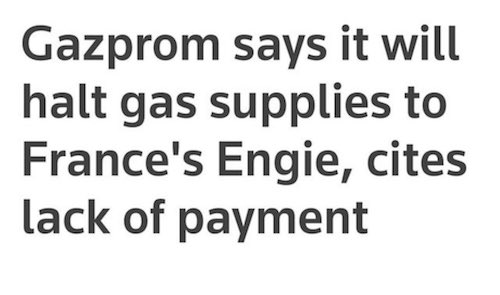

Look at the future.
• The SCO: Half The World’s Population To Forge The New World Order (Trenin)
Over 20 years after it began as an attempt at cooperation between five-Russian led post-Soviet states and an emerging China, the Shanghai Cooperation Organization (SCO) has become a major global institution, representing close to half of the world’s population. From September 15-16, Samarkand, one of the ancient centers of human civilization, will host the annual summit of the group. The Uzbek presidency’s priorities include strengthening the SCO’s capabilities in assuring regional security and stability; promoting friendship and good-neighborliness; raising its global profile; countering threats in the information and ideological spheres; expanding parliamentary links; energizing economic interaction; enhancing connectivity; intensifying cultural and humanitarian contacts; and raising the general effectiveness of the collective and its mechanisms.
All of this looks impressive, but quite anodyne, and the documents to be formally approved at the summit do not promise any major sensations – beyond the long-expected admission of Iran as the SCO’s ninth member state. Yet the environment in which the Samarkand summit will be held differs greatly even from last year’s gathering in Dushanbe. Russia’s military operation in Ukraine has led to a proxy war between Moscow and Washington. Meanwhile, Sino-US relations, already confrontational, have become palpably strained over the recent visit to Taiwan by US House of Representatives Speaker Nancy Pelosi. sNATO’s new strategic concept adopted last June in Madrid describes Russia as the most significant and direct threat, and China – for the first time – as a challenge to Western interests, security and values. As a result, the international community has moved visibly closer to a Cold War-style division between two camps in an intensifying rivalry over the world order.
That said, the SCO is unlikely to become the non-West’s version of NATO. While the US-led bloc is now more united than ever in its effort to preserve the order built and developed in the heyday of its global dominance, non-Western nations do not display anything similar to that sort of unity, hierarchy, and internal discipline. Russia and China, although they both reject US global hegemony, pursue very different grand strategies and – despite their public declarations of a cooperation that “knows no limits,” and a partnership that is “more than an alliance” – are careful not to damage their other important connections – e.g., China’s with the US and EU; and Russia’s with India – as they cooperate with each other. Moreover, China and India, not to mention the latter and Pakistan, while all members of the SCO, view each other as major security threats.
Despite such diversity and complexity, however, the SCO, at the start of its third decade, is not only still in business, but is steadily getting more active and becoming more attractive to others. In 2001, it started at six; after 2017, the membership expanded to eight, with another 20 countries or so listed as observers, dialogue partners, or in the process of joining. Iran’s accession this year is spurring the interest of Turkey and a number of Arab countries, notably the United Arab Emirates, Saudi Arabia, Egypt, and Qatar. The SCO community could potentially include much of the Eurasian continent between Belarus and Cambodia. Such enlargement carries obvious risks in terms of even wider diversity of interest, conflict, and frictions between the countries that aspire to join. Yet, the example of China and Russia; India and Pakistan finding the SCO useful to their interests is a convincing argument for accession.

“..how did the FBI know about our story weeks before it was published, maybe even before we were told about the laptop by Rudy Giuliani’s lawyer Bob Costello?”
• FBI Put The Hunter Biden Story Right In Facebook’s Lap (Devine)
Since our story had nothing to do with Russian disinformation, what made Facebook think it was the “dump” the FBI warned them about? We asked Facebook: “Was there mention made in the FBI briefing of Joe Biden, Hunter Biden, Ukraine or a laptop?” Facebook’s answer was curious. “The FBI shared general warnings about foreign interference — nothing specific about Hunter Biden.” Note the omissions. Whatever was said, the briefing must have been specific enough for Facebook to recognize immediately that our story was exactly what the FBI was warning about and move at record speed to throttle it.
At 11:10 a.m. the morning the story went live, Democratic operative Andy Stone, Facebook’s communications manager, issued a statement on Twitter announcing “we are reducing its distribution on our platform” while the story is “fact checked by Facebook’s third-party fact checking partners.” All morning the bombshell story had been the subject of frenetic commentary from journalists on twitter. But Stone’s announcement killed it stone dead. Twitter followed Facebook’s lead and locked The Post’s account for two weeks. Mission accomplished. Polls show that the outcome of the election may have been different if the story had not been censored.
[..] the question is, how did the FBI know about our story weeks before it was published, maybe even before we were told about the laptop by Rudy Giuliani’s lawyer Bob Costello? Were they spying on John Paul Mac Isaac, the owner of the Delaware Mac repair shop where Hunter had abandoned his laptop in April 2019? Mac Isaac believed he was under surveillance after he first contacted the FBI on October 9, 2019, via his father, to tell them he had the laptop and was concerned about evidence of crimes he believed it contained. The FBI’s response was oddly hostile. sWhat followed was a curious visit to his Delaware home by FBI agents Mike DeMeo and Joshua Wilson of the FBI’s Baltimore office a month later, and again to his store on December 9, this time with a subpoena for Hunter’s water-damaged laptop and a hard drive clone of its contents which Mac Isaac had made.
[..] We don’t know whether Mac Isaac was under FBI surveillance. But we don’t have to speculate about Rudy Giuliani. We know the FBI spied on the former mayor’s cloud for two years from May, 2019, a month after he began working as then president Donald Trump’s personal attorney. A year after raiding Giuliani’s Upper East Side apartment last April, ostensibly over FARA violations, the FBI returned all his devices, without charging him, and told the New York Times he was no longer under investigation. So the FBI had access to all Giuliani’s emails and iMessages for two years. Were they spying on Giuliani in order to spy on Trump? Unfortunately for them, Trump rarely writes emails or texts so they came up empty there. But it is possible that they saw the email to Giuliani from his lawyer Bob Costello at 4.28 p.m. on Aug. 27, 2020, telling him of Mac Isaac’s “amazing discovery.”

Instrumental in Russiagate, too.
• Top FBI Agent Resigns Amid Claims He Shielded Hunter Biden From Probe (NYP)
A top FBI agent at the Washington field office reportedly resigned from his post last week after facing intense scrutiny over allegations he helped shield Hunter Biden from criminal investigations into his laptop and business dealings. Timothy Thibault, an FBI assistant special agent in charge, was allegedly forced out after he was accused of political bias in his handling of probes involving President Biden’s son, sources told the Washington Times on Monday. The agent was escorted out of the field office by at least two “headquarters-looking types” last Friday, the sources said. Thibault, a 25-year-veteran, had already been on leave for a month after the top Republican on the Senate Judiciary Committee, Chuck Grassley (R-Iowa), started raising concerns about whistleblower claims the FBI had obstructed its own investigations into the first son.
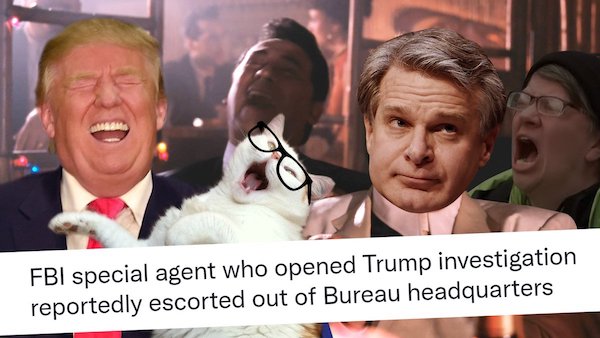
In a letter to FBI Director Christopher Wray in July, Grassley said Thibault and FBI supervisory intelligence analyst Brian Auten were allegedly involved in “a scheme” to “undermine derogatory information connected to Hunter Biden by falsely suggesting it was disinformation.” Thibault also allegedly tried to kill off a valid avenue of investigation of possible Hunter Biden criminality up until at least one month before the Nov. 2020 election, according to Grassley. “Thibault allegedly ordered the matter closed without providing a valid reason as required by FBI guidelines…. [and] subsequently attempted to improperly mark the matter in FBI systems so that it could not be opened in the future,” Grassley wrote. It was the same month The Post first started reporting on Hunter Biden’s abandoned laptop, which included troves of emails related to his shady overseas business dealings.
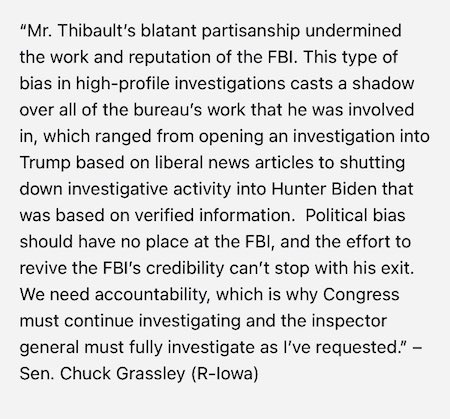

“..we counted 14 different ways of attributing deaths to COVID-19..”
• Three Ways the Psychotic Covid Panic Narrative Was Created (DS)
Throughout restrictions which Lord Sumption called a “catastrophe”, we were exposed to the mantra of ‘follow the science’. But unfortunately, the only ‘science’ that seems to have been followed in the major decisions is that of modellers and government departments. Models are akin to opinions. If they are science, the evidence they provide sits on the lowest rung of the ladder. Modellers are accountable to no one; most have never seen a patient in their lives as they have no clinical background, which impedes their understanding of how people behave. Individuals are not herds of buffalos. Some modellers have a consistent track record of getting their predictions dramatically wrong with (again) catastrophic consequences.
Since the start, we have looked at the evidence underpinning the fear-generating narrative pushed by the Government, some politicians, the media and many Twitterati, who overnight forgot the principles of scientific investigation, equipoise or uncertainty and the work of many pioneers in respiratory virus epidemiology spanning a century. The psychotic narrative rests on three legs of what we call the Covid narrative stool. The first leg is the number of cases. We have shown that misuse of polymerase chain reaction (PCR) based on a superficial understanding amplified the number of ‘cases’ as many of these were not likely to be infectious at all. The second leg was the hospital pressure theme. Here using data which should have been available (but are not), we have shown that up to 40% of hospital cases were infected while in hospital, a phenomenon which shows no sign of abating. The data from three devolved nations and our interpretation have been serialised on our website.
Finally deaths. A death in epidemiology is the one inevitable outcome you can observe and tally. The question is: what caused it? This is called attribution. Looking at the data from freedom of information requests made by an alert public and the response at times by patronising authorities, we counted 14 different ways of attributing deaths to COVID-19. The first prize for the most bizarre was the Care Quality Commission’s: it left it to the care provider to decide the cause of death. So it is possible that administrators decided what role SARS-CoV-2 played in your grandmother’s death. In one health authority’s case, deaths of people who tested ‘negative’ were rolled into the Covid total.

“..even if he was “only right five percent of the time,” it still means “we were lied to five percent of the time.”
• Fauci’s Presence Is No Longer Politically Sustainable (CHD)
While Dr. Anthony Fauci claims he’s stepping down to “pursue the next chapter” of his career, an attorney who has been pursuing legal accountability for Fauci’s actions believes it’s because “his presence is no longer politically sustainable.” Fauci announced on Aug. 22 that he is stepping down from his positions as director of the National Institute of Allergy and Infectious Diseases, chief of the National Institute of Allergy and Infectious Diseases Laboratory of Immunoregulation and as chief medical adviser to U.S. President Joe Biden. “The huge pop we are all hearing is the global opening of champagne bottles celebrating Fauci’s departure,” attorney Thomas Renz told The Epoch Times.
Renz is the lead attorney in several major cases brought against the CDC, the Department of Health and Human Services, the Department of Defense, the Biden administration and Fauci himself; regarding forced vaccine mandates, the COVID-19 lockdowns, mask mandates, business closures, alleged hospital negligence, vaccine injuries to military personnel and civilians and efforts to censor the truth about COVID-19. While his assertions have been dismissed as “false,” “rich in conspiracy theory” and “based on faulty data due to a database glitch,” Renz responded to critics that even if he was “only right five percent of the time,” it still means “we were lied to five percent of the time.”
According to Renz, the whole COVID-19 playbook used by the government and the liberal media to force compliance of restrictive protocols is filled with inaccuracies and inconsistencies. While Fauci demanded the use of masks and social distancing because these measures were supposed to prevent the spread of the virus, numerous studies and scientists say otherwise. The CDC admitted in August 2020 that “sustaining social distancing interventions over several months might not be feasible economically and socially.” Fauci himself has flip-flopped numerous times on the effectiveness of wearing masks. Democrat politicians who imposed mask mandates, lockdowns, quarantines and rules barring indoor personal-care services were frequently caught doing precisely what they forbade others to do.
UK Funeral Director John O’Looney
UK Funeral Director John O’Looney.
“Embalmers have NEVER seen this before in the arteries of people who have died suddenly”. pic.twitter.com/RObPFb36MP
— TheNo1Waffler (@TheNo1Waffler) August 29, 2022


The very first Calvin and Hobbes.


Biden WMD
Extremely rare footage. Most of these interviews have been scrubbed.
After no WMDs were found in Iraq, Biden was still defending the war. He said that it was ok for Bush to lie about WMDs in order to build public support for the war. pic.twitter.com/Us3pC0NCrc
— Maze (@mazemoore) August 29, 2022

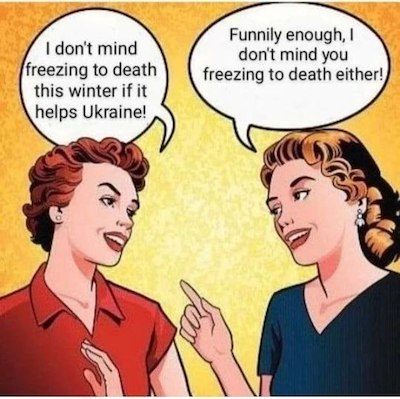

Tucker Carlson – This isn’t bad policy; this is nuts
Tucker Carlson – Europe is moving backward at high speed – part 8 pic.twitter.com/Fe6bcVS6sb
— Wittgenstein (@backtolife_2023) August 30, 2022

Kagu
In the dense mountain forests of New Caledonia, on the forest floor lives an almost flightless and endangered bird called the kagu (Rhynochetos jubatus)
Watch these two greet each other, this video has soundpic.twitter.com/MNLCjRmYW0
— Science girl (@gunsnrosesgirl3) August 29, 2022

Flying fox young bats ride clinging to their mother’s breast with their mouth, even though some young are two-thirds the weight of their mothers & quite capable of flying on their own. Photo: Hemant Kumar.


Support the Automatic Earth in virustime with Paypal, Bitcoin and Patreon.








